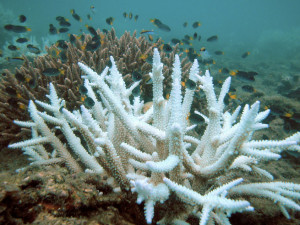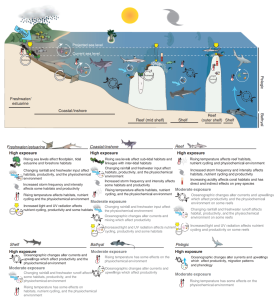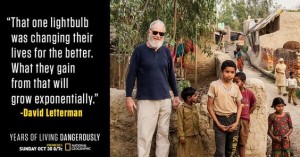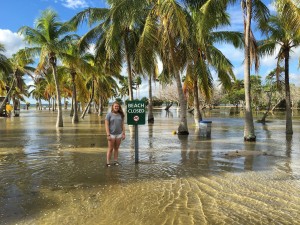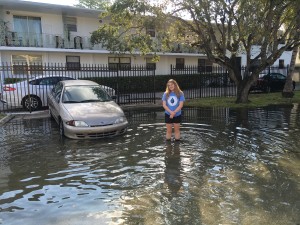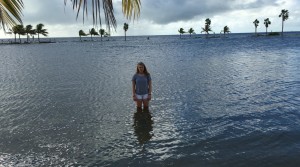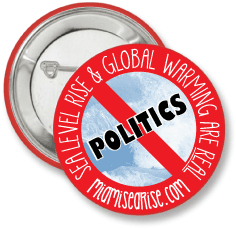
When I created The Sink or Swim Project and began my work on climate change, I immediately noticed that the old fashioned ways of our world were nearly always protected by politicians motivated to protect special interest groups that poured money into their hands to allow ‘business as usual’. In the years since I’ve seen politics protect established industries, businesses and approaches time and time again, often without regards to the existence of better approaches or, for that matter, facts or science.
Last summer’s Amendment One fight, a case where Florida’s electrical utilities lead by Flower Power & Light (or as I wrote in a blog, FP&Lies) spent about $22 Million to try to mislead voters into supporting a deceptive new law that would limit solar power here in the Sunshine State as has happened in other states. The good news is that as a result of a grass-root effort to educate voters of the truth that was led by Floridians for Solar Choice, Jimmy Buffet and many others, including The Sink or Swim Project, the Amendment was defeated. The ‘bad’ news is that it has been reported that the electrical utility industry is also spending another $20 Million in political donations to Florida lawmakers in hopes that Florida Senators and Representatives will help them achieve what Florida voters stopped.
It verges on despicable that these businesses would do this but not surprising that they want to protect their profits. Yet, if we are ever going to move from a fossil fuel based economy of oil and coal that pumps carbon into our atmosphere to one that’s sustainable, then we are going to need to focus on science and place it and the good of our environment over the profits of established businesses that sure don’t seem sincere about evolving towards sustainability.
And as 2017 begins doing just that, having many of our national and state elected officials put science over politics is, I suspect, going to be more challenging than has been the case in nearly a decade but that’s what we must fight for every day from now on. All of us must set politics aside whenever possible and focus on facts. Facts such as that our planet has never been warmer since man invented the thermometer. Unless one does not believe that a thermometer measures the temperature around us then there’s no way to dispute that our planet is hotter than ever in recorded history and that heat records are set nearly every single year now. The science and that little scientific instrument called a thermometer tell us that (please see my blog from last year on temperature).
And before someone again disputes man’s impact, or that we are warming our planet to alarming levels, then consider that I expect that any day now we will hear scientists conclude that 2016 was the hottest year on record, breaking the record set in 2015 which broke the prior record set in 2014 and so it goes. And if thermometers don’t convince some that earth has been warming as a result of man-made carbon from fossil fuels then perhaps the science related to the melting Antarctic ice will help prove the point.
In The Washington Post’s article (click here to read the entire article) entitled; 2016’s warm Arctic winter is ‘extreme’ even in era of fossil fuels, scientists say, numerous scientists explain that the melting ice in the Antarctic is caused by man. As the article, and the science, noted:
The analysis found that the temperatures above 80 degrees North latitude were “unprecedented in the satellite era from 1979 onwards.” It also found that these temperatures would be highly unlikely in a climate that is unperturbed by human influences and that even in our current climate, heavily influenced by humans, they are pretty unexpected.
And if these facts don’t lead those who deny what’s happening to become enlightened then perhaps simple images will do the trick. Pictures such as these that I took from late last year all over Miami when places that historically did not flood on sunny days, days where high tides during the full moon phase combined with the ever increasing levels of our oceans, now routinely flood with salt water, are becoming common. Unless someone simply wants to overlook these pictures, or science, it should be obvious that we humans have created a problem that must be fixed by we humans.
As 2017 starts, the good news is that despite the challenges that we will likely face over the next few years the solutions are already trending in the right direction. In a few years it’s predicted that man’s use of fossil fuels will reach its peak as people and many businesses begin to demand the use of sustainable solutions over those such as oil and coal.
It is also good news that after our success on Amendment One last summer, America’s largest solar installation company, Elon Musk’s’ Solar City, announced plans to begin business in Florida and to expand rapidly here (to learn more, click here). That, along with the dramatically lower cost to install solar (much less the free energy it generates forever once installed) are signs that coal producers and traditional utilities can’t dispute. One of my dreams, that The Sunshine State can become The Solar State is, thankfully, alive and well and trending in the right direction.
And speaking of Mr. Musk, one of today’s most important innovators, he just might be single handedly helping move the auto industry away from fossil fuels (oil) to batteries through his Tesla brand that in a year or two will mass produce affordable battery operated cars at a cost of about $35,000 each. And if that’s not enough, then perhaps the Tesla ‘Gigafactory’ for batteries in Nevada is proof. Why is such an innovative businessman doing these things? It’s because he knows that these are the products that consumers of the future demand and that, for him and his employees, that is good business.
And it’s those trend examples along with the science, that all of us should focus on, support and advocate as these are the things that hold the hope and promise of our future more than any short sighted politician, stale business or old fashioned industry ever will.
Allow me to begin the end of this New Year blog by sharing a letter to the editor that appeared in this week’s Miami Herald that makes my point as well or better than I can. I don’t know Mr. Schwartz, its author, but I sure do agree with him and feel his sentiments are worth all of us keeping in mind no matter how challenging 2017 or the next few years might seem. Progress is being made and much is trending in the right direction and that’s mostly because of the science and the truth…
SCIENCE AND TRUTH
The whole point of science is that it is objective.
It is not limited to one person’s subjective opinion or ideas. And it is backed with empirical evidence, which is reproducible independently. It is the closest we will ever come to truth on this planet.
The fact that it is being attacked because some people don’t like the consequences of what it is telling us, specifically climate change, is dangerous.
It is the same as when the pope, during the Roman Catholic Inquisition, had Galileo arrested and excommunicated because he discovered that the Earth revolves around the sun and not vice versa.
This nation was founded on the principles of the Enlightenment, and to attack those principles is to attack the very foundations of this country. It is what demagogues and tyrants do when they want total power.
We cannot allow this to happen.
Regardless of our particular political persuasion, we are all patriots first and we must defend our country against those who want to divide and conquer us.
– David Schwartz, Miami
As an example of what we can do when average people focus on the science and the truth is what we accomplished in North Dakota by, at least temporarily, putting a stop to the expansion of an oil pipeline that places the Indian tribe’s water supply and heritage, much less our environment, at risk. I know that the fight in North Dakota is far from over, but the fact that Americans of all types could rise up to protect the tribe and our environment (you can read more about this in my blog from late last year by clicking here) is a good sign and gives me hope for the future.
And what should any of us want on the first day of a new year but hope. Lots of hope. Science and truth give me great hope but so do other signs that can found brewing all around us. So, during what might seem like the dark days ahead please don’t forget the good signs and progress that is being made. Please. Progress is being made and were are now at a point, or nearly so, where a sustainable future cannot be denied.
Here’s to you and your family having a Happy, Healthy (and Hopeful) New Year!
New Year’s Postscripts
Thanks to my friends at former Vice President Al Gore’s Climate Reality for the phrase Science Trumps Politics. I suspect that I will be using it often over the next four years. To learn more about Climate Reality or to consider attending a Climate Reality Training, which I highly suggest, click here.
Thanks also to the University of Miami for the most excellent news that arrived in the mail at my home just before Christmas of my being accepted to one of the world’s most renowned marine science schools on earth, the Rosenstiel School of Marine and Atmospheric Science (http://www.rsmas.miami.edu/), much less being honored with a President’s Scholarship. I can’t wait for my undergrad studies to start in August and officially be a CANE!
And lastly, allow me to share with you that The Sink or Swim Project is now officially and formally a 503(c) non-profit corporation (Federal Identification # 81-4570941) under the Internal Revenue Code Public Charity Section 170 (b) (1) (A) (vi). Tax deductible donations can be made to The Sink or Swim Project Inc., can be deducted under the IRC’s Sections 170, 2055, 2106 or 2522 and so the next time you decide to support our work, whether with a donation or by buying some of our merch (click here to find out latest offerings) you can do so on a bonafide tax deductible basis.
